An Indigenous voice to parliament is ‘our last best chance’
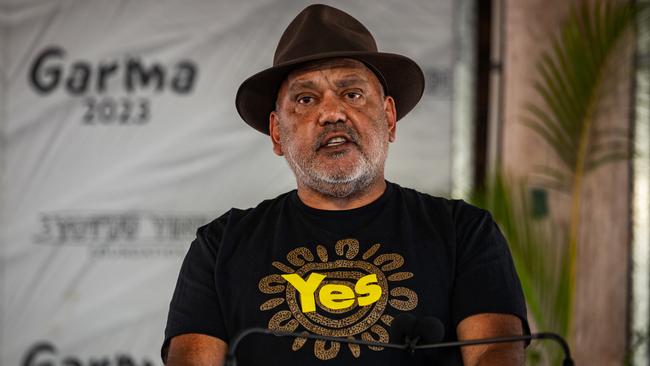
The country will change. I cannot imagine us doubling down on exclusion. Australia sees itself as a settler society, but when we have our rightful place, our children and our nation will be complete.
Australians will rise to the opportunity the country has given us. When we are psychologically accepted, racism will diminish. Fear will diminish, and too much of the prejudice of the past was based on fear.
How can you fear people you’ve never met? We must find the friendship. Our kids must not be burdened with that exclusion for all of their lives.
We’re on a journey. We’ve been working towards this latest iteration of our cause for 15 years. No other public policy issue has taken as long as the voice. No other policy issue in this country has involved as many parliamentary committees and public consultation processes as the voice.
It has been a hard road. We’ve gone through five governments and six prime ministers, but we’re on the last stretch.
Probably the high watermark processes of self-determination was Uluru. How does a people pull together a consensus like that nationally? The process was meticulous and assiduously prosecuted by leaders from all over the country.
We have to flick the switch to Yes. Indigenous people can’t languish in an Australia that has the default setting of No. It’s time for the country to press the switch to Yes.
You want to understand why the position of our people is so powerless in their own country – worse than any other jurisdiction around the world? It’s because the country has determined that the power button should remain off. With the arrival of the colonists, they knew there were people here.
The absolute question had to be, what do we do with them? How are they to be accommodated in this new colony? Shouldn’t we determine something about this and make provision for it? The answer was “no”.
Many things flowed from that “no”.
In 1901, the colonies decide to come together under a national constitution. The Indigenous are still here, albeit in a poor position.
Much reduced in numbers, much misery, and the question at the time of Federation, was there going to be recognition and inclusion? The default answer was “no”. In fact, an explicit exclusion. The new constitution of the commonwealth mentioned Aborigines twice, both in the negative.
It’s about our national identity. I want to say that we’re all bequeathed to these British institutions captured by the constitution, and of course, a glorious multicultural unity. These three stories can be brought together with this vote.
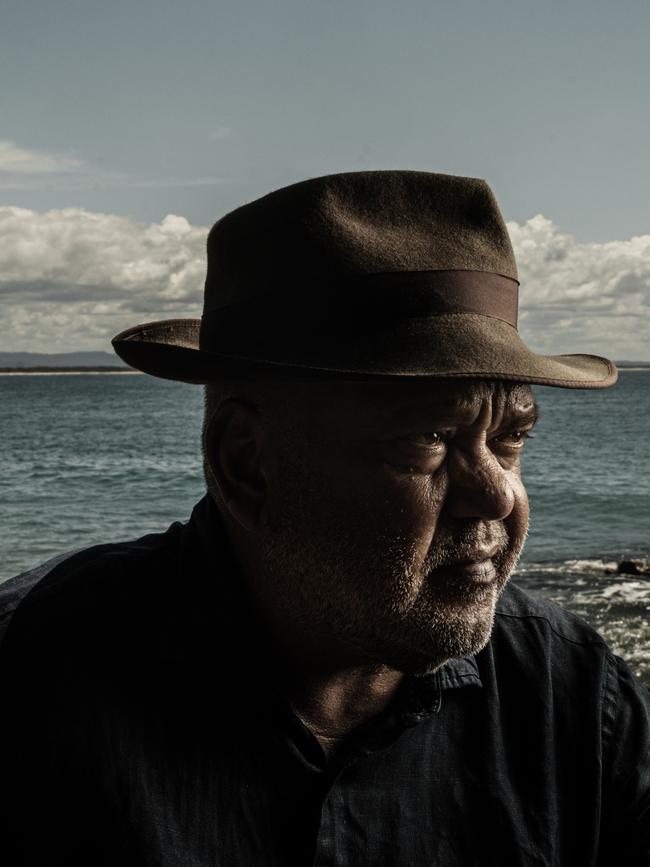
The ultimate project here is to recognise who we are, understanding who the Australian people are, who we are in the present, and what do we want to bequeath to our children.
Our first story, the Indigenous heritage, belongs to everyone.
The rule of law had its origins in Britain, and [through] our multicultural unity, we’ve achieved an amazing thing in this country. Our anxious Beginnings is not just a third story in the margins. It’s all part of this unity.
Our ancient beginning is not just a third story in the margins. It’s all part of this unity. We’re going to come out and leave the settler versus native story behind us. That will be in the past. We will see these three stories entwined and we will see ourselves anew and our children will have a new sense of who they are as Australians.
That will be the ultimate reconciliation that we can achieve with this referendum.
This is not an election. This is not a federal election campaign between Liberal and Labour. If you’re a Liberal voter, there’s no reason why you can’t say Yes to Australia. And if you’re a Labor voter, the same applies.
This is not about Anthony Albanese and Peter Dutton. This is about whether we’re going to achieve a new Australia. And for our mob, it is going to be new. It is going to be a new Australia for young Aboriginal children in the future.
We desperately need a country that owns them, that cares for them, that sees them as part of the Australian family. The voice needs to have a footprint in the local and regional areas.
In Cape York Peninsula, one of the most tragic things I deal with is remote communities suffering from rheumatic heart disease. You get a fever as a toddler or a child or a young student, and you are condemned for the rest of your life. Because your heart is compromised, and without very assiduous medical treatment from that moment on, you are susceptible to early death.
In your teens, in your 20s, in your 30s. I know of too many young people who in the middle of a football game have collapsed with a heart attack. And they are victims of rheumatic heart disease. It’s a disease existing in Africa, India, Bangladesh, the most impoverished countries. It used to exist in Australia but it’s been eradicated. It’s been eradicated in many places around the world. But it exists in high prevalence in remote communities
I go to schools, I see pictures of kids on the staffroom: you’ve got to take notice of these kids because they’re vulnerable. We’re getting them literate. We’re getting them numerate. They’re excited about their educational futures. But they don’t know what I know, which is that they have a sword hanging over them. I looked up the Hansard for our local member of parliament, who’s represented us for 26 years, whether he’s mentioned rheumatic heart disease in those three decades? And the answer is “no”.
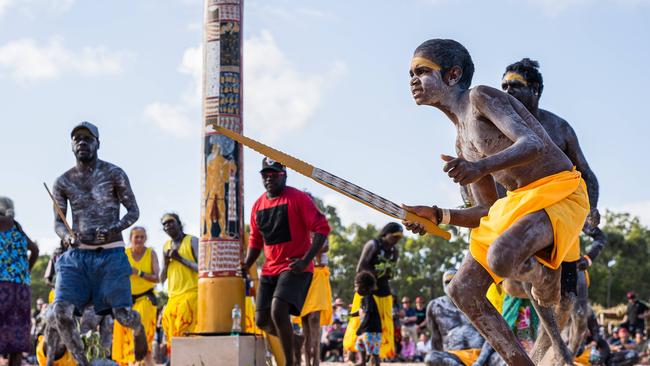
With a voice, that will not happen. That’s why we need a voice.
Somebody has got to press the issue of rheumatic heart disease. How can we get a proper policy response? How can we get a budget response if nobody is talking about it? At the level of Arukun and Wilcannia and so on, this is the interface between the bureaucrats and our people. They’re the people who are most affected and whose destiny is at stake here. Those communities need to be able to sit down with government and make plans and commitments and allocate budgets and do the action.
At the policy level in Canberra, at the high level, a national voice will be pressing issues like rheumatic heart disease as an urgent question we need to confront. Our ultimate project here is to complete our understanding of who we are.
Yes, we are recognising Indigenous people in the constitution. But that project – the bigger project – is one of understanding who the Australian people are, what is our history, where have we come from, who we are in the present and what do we want to leave to our children.
If we did have a big mirror and we looked into it, we would see three stories.
We would see the heritage plain as day of Indigenous people. How could we deny it? The country has a history of 65,000 years. It is part of Australia and it belongs to all of us.
We also have a history that started in 1788. Another story started then and the transplantation of British institutions to this country to make the democracy and all that is embodied in the constitution, the rule of law, parliamentary government, all of these things have their origin in Britain. That’s the second part of Australia’s story.
And of course that third part of the story is this multicultural unity, the result of migration.
Australia is going to put an end to the idea that there were settlers and there were natives. We’re going to move forward once we recognise Indigenous people as Australians. This is our last best chance.
This vote in the referendum will be the most important. What we do in this referendum will be absolutely momentous. This is a chance that comes around so infrequently. This is a question to be determined by the people of Australia. We’re going to do something that is going to be the most important event in the two centuries of colonial occupation of this country.
At 3 per cent, it means we as Indigenous people can’t win the referendum. Our numbers just don’t count. It’s your 97 per cent that counts.
The white fellas, it will fall to you. The 97 per cent to decide whether we seize this opportunity to make the place complete.
As fellow Australians, I feel the people here have a particular responsibility to our nation. We’re going to love them on the beaches in this campaign. We’re going to love them at every front door, on the football pitches, in every street, in every railway station. We are going to leave no stone unturned.
I see the Prime Minister not as the leader of the Labor Party. He’s the leader of Australia. And we will follow him in this campaign and bring it to a successful conclusion. And we need 97 per cent to be fully involved and engaged in this.
Let me close by mentioning the amendment. The amendment is the starting place and the ending place for this referendum. We’re going to add a little bit of soul to our founding document. It’s a beautiful adornment of our constitution.
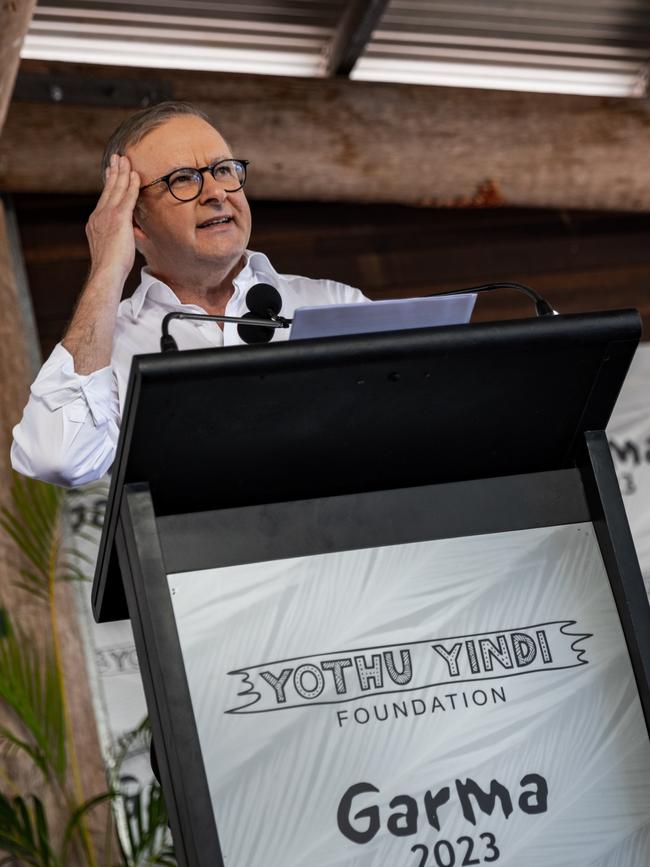
I don’t know how many of you have read the constitution, but it’s like the rules of cricket. It’s about that compelling. But all of a sudden you’ll come across this new provision in Chapter Nine. Your children will read this provision after October and they’ll think: ‘Oh, this is what Australia is’.
That’s your responsibility as a citizen and as a voter in this referendum, to read the provision. It’s the starting place and the ending place. You don’t need to be a constitutional lawyer. It’s in English. The provision has four parts. The first is the recognition part. And these are the words in recognition of Aboriginal and Torres Strait Islander peoples as the first peoples of Australia.
Can we go with that? Can we go with that recognition?
Secondly is the guarantee or the promise. What are the Australian people going to guarantee to Aboriginal and Torres Strait Islander people in this provision of the constitution? It’s “there shall be a body”. That’s the guarantee.
What’s the purpose of this body? Well, the third clause reads the Aboriginal and Torres Strait Islander people through the voice may make representations to the parliament and the executive government.
That’s the purpose. To make representations to the parliament and the executive government. They make representations on matters affecting Aboriginal and Torres Strait Islander people.
And, finally, the provision answers the question of detail.
Where is the detail? The last provision answers the question of detail. It says the parliament shall have power to make laws regarding the composition, functions, powers and procedures of the voice.
Noel Pearson delivered this speech at the Garma Festival, August 5, in northeast Arnhem Land.

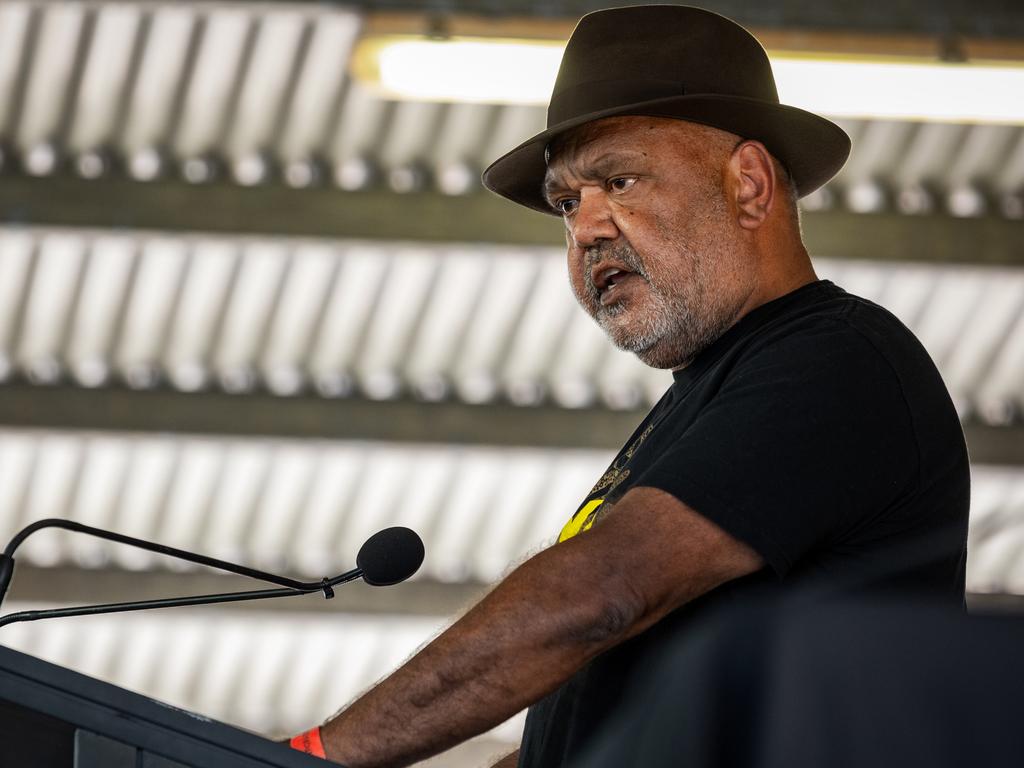
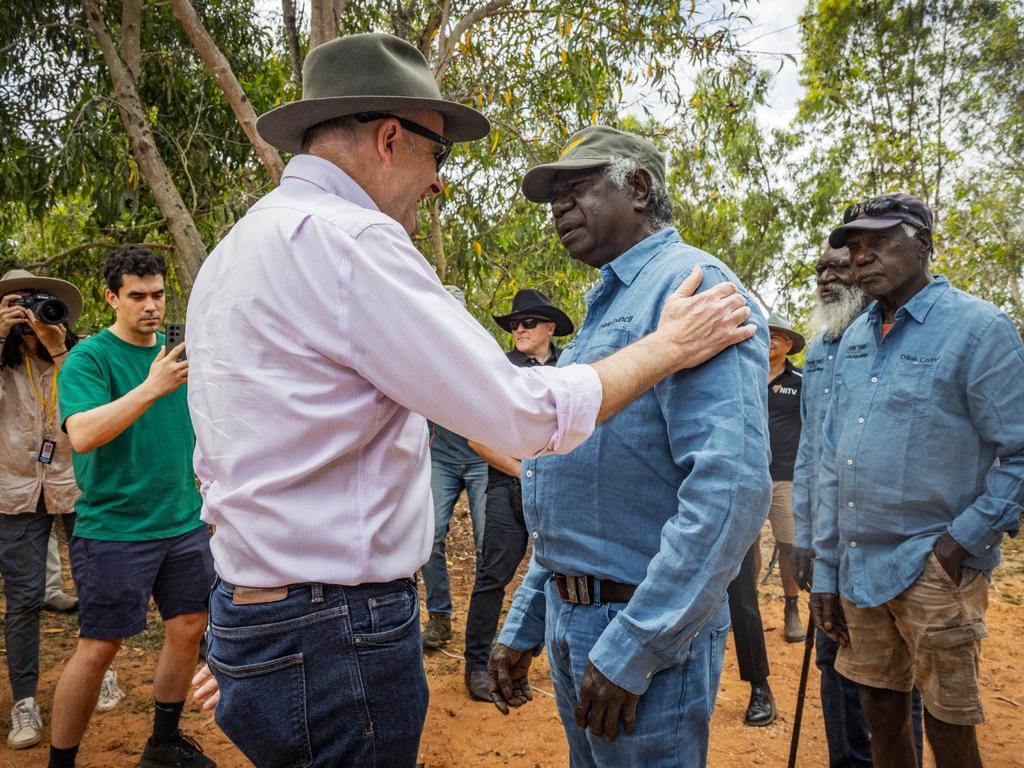
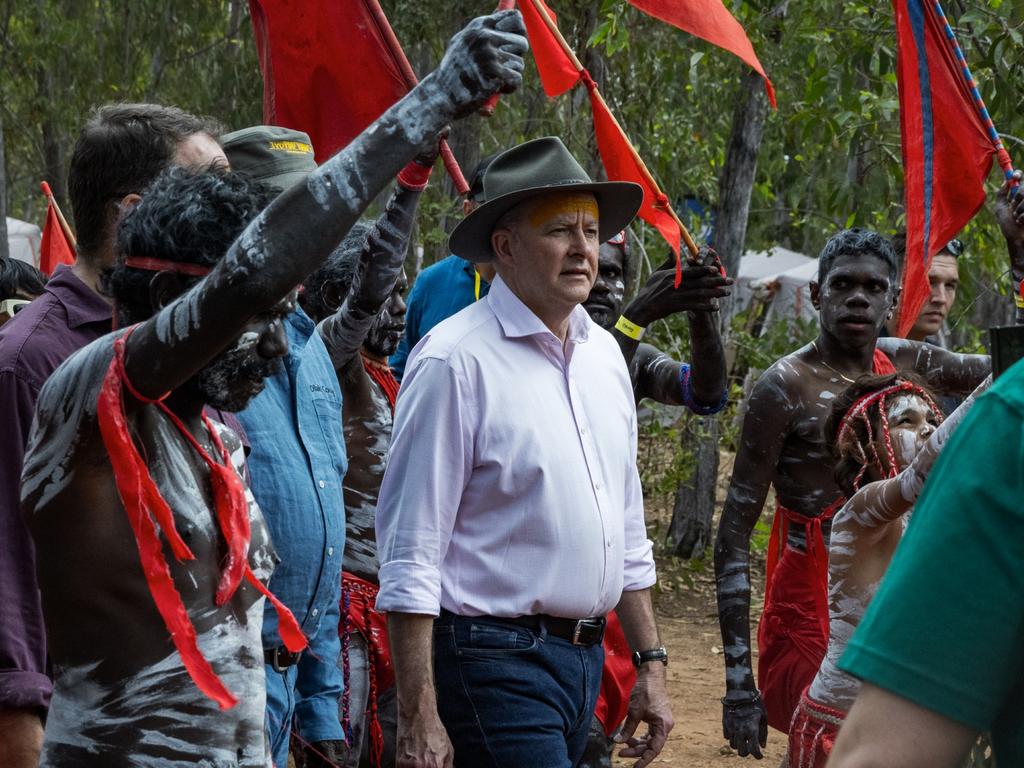
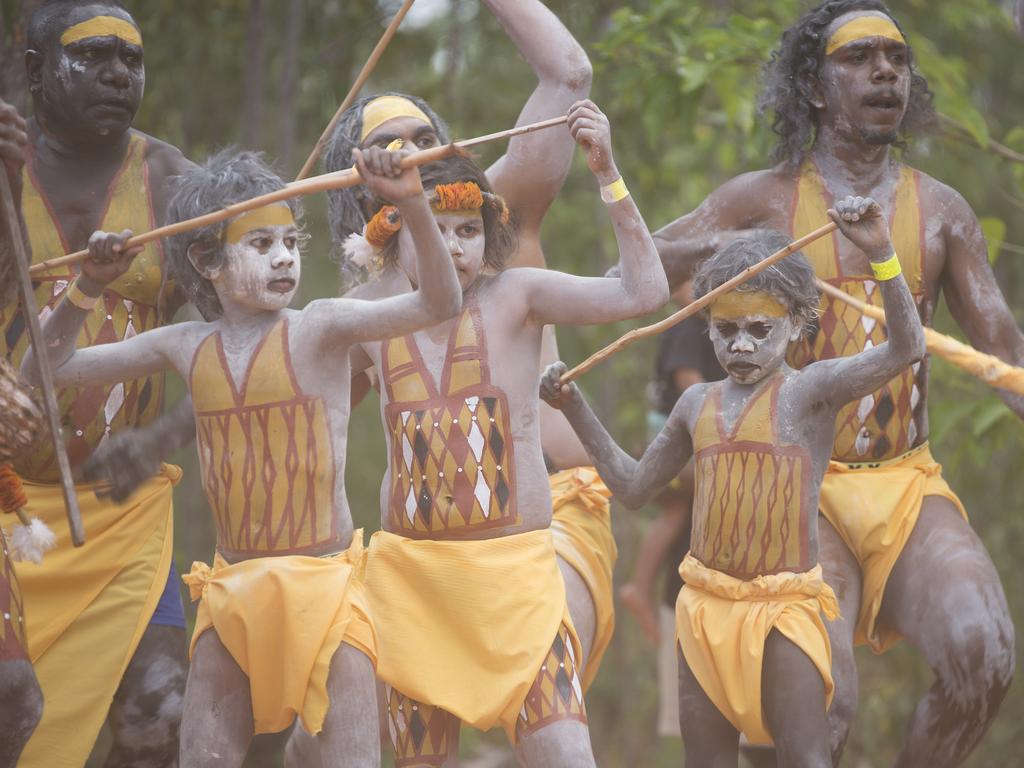


I acknowledge my Yunupingu brothers, sisters and the Gumatj clan, and the Yolngu of Arnhem Land, Prime Minister and Minister for Aboriginal Affairs and all distinguished people here today.